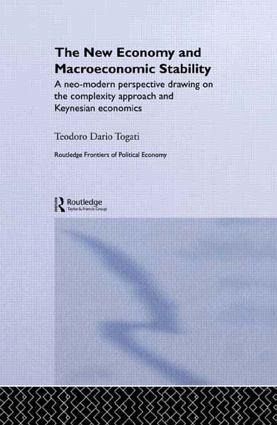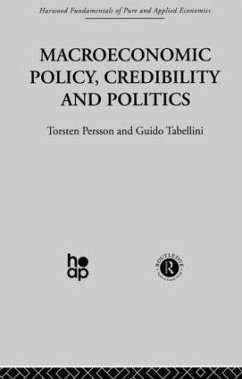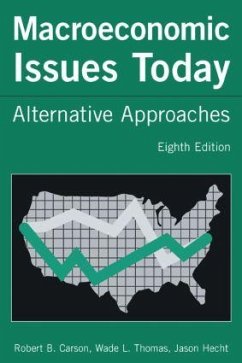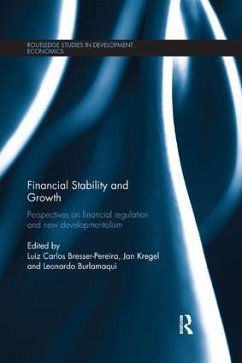
The New Economy and Macroeconomic Stability
A Neo-Modern Perspective Drawing on the Complexity Approach and Keynesian Economics
Versandkostenfrei!
Versandfertig in 1-2 Wochen
59,99 €
inkl. MwSt.
Weitere Ausgaben:

PAYBACK Punkte
30 °P sammeln!
The past decade has seen many leading economies, especially the US, undergo profound structural transformations. Departing from the standard theories employed to explain this phenomenon, here author Togati provides the first broad analysis of the New Economy. In this book, the first to look at the new economy from a post-Keynesian / post-modern perspective, he focuses on its macroeconomic implications, presenting a more balanced view than that provided by orthodox neoclassical analysis, and studying the interaction of key variables such as: * information technology * globalization * the increa...
The past decade has seen many leading economies, especially the US, undergo profound structural transformations. Departing from the standard theories employed to explain this phenomenon, here author Togati provides the first broad analysis of the New Economy. In this book, the first to look at the new economy from a post-Keynesian / post-modern perspective, he focuses on its macroeconomic implications, presenting a more balanced view than that provided by orthodox neoclassical analysis, and studying the interaction of key variables such as: * information technology * globalization * the increasing significance of intangibles and financial markets. This ground-breaking book utilizes a 'neo-modern' perspective drawing on complexity theory to advance the study of the stability and dynamic behaviour of economic systems. Togati utilizes the Calvino labels to identify new empirical evidence, and examines the implications for global stability based on New Classical Macroeconomics and Keynsian theory. The analysis developed in this book has important practical and policy implications for the New Economy, making this book essential reading for students, academics and practitioners in this field.














